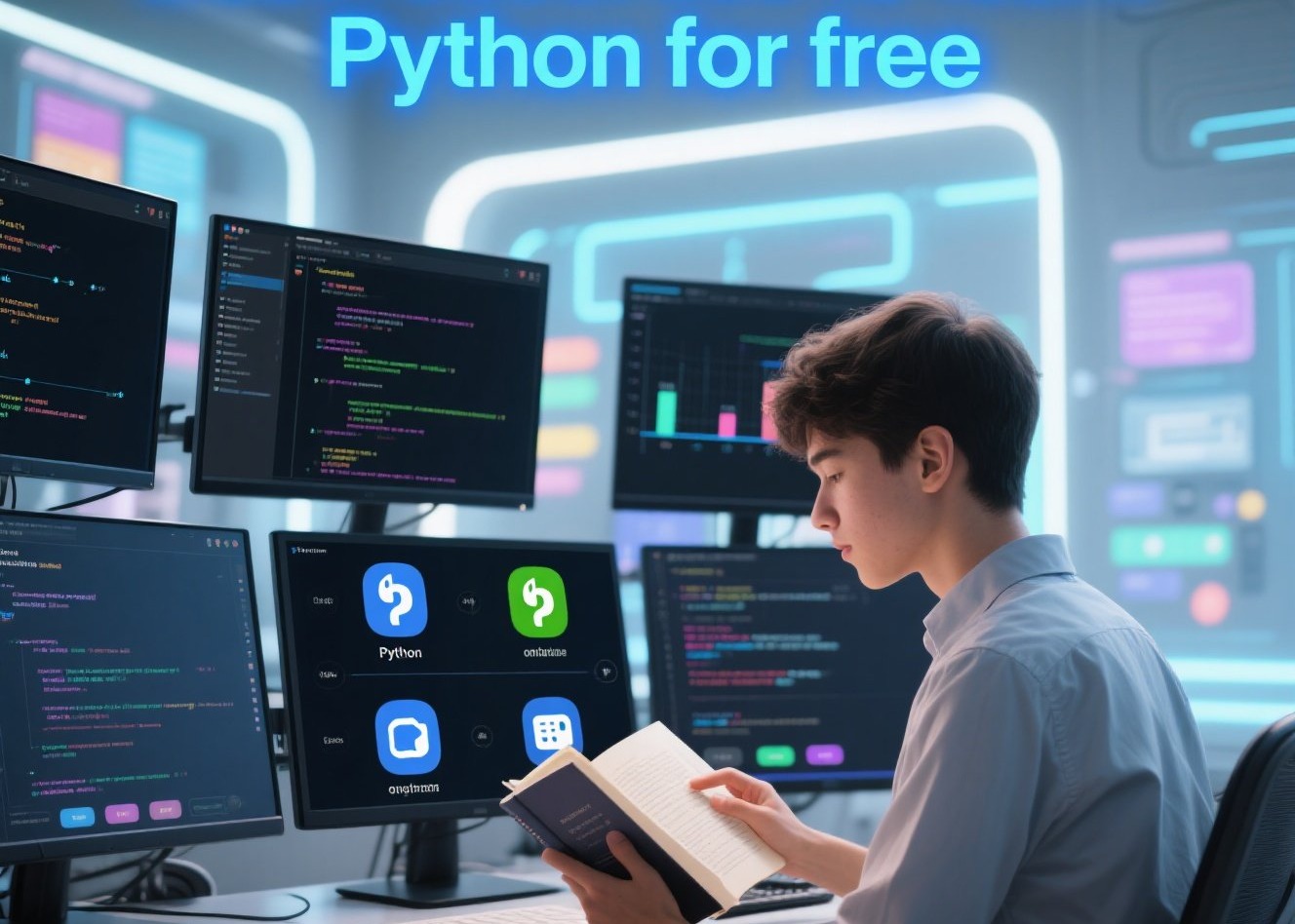
Best Resources to Learn Python for Free in 2025
Python has become one of the most popular programming languages in the world. From web development and data science to AI and automation, Python is everywhere.
The best part? You don’t need to spend thousands of dollars to learn it. There are plenty of free, high-quality resources online that can help you become a Python developer.
In this guide, we’ll cover the best free Python resources in 2025—courses, tutorials, books, and communities.
1. Free Online Python Courses
🎓 Coursera – Python for Everybody (Free Audit)
Beginner-friendly
Covers basics: variables, loops, functions, and data structures
Free if you “audit” the course (certificate costs extra)
🎓 freeCodeCamp – Python Full Course on YouTube
4–6 hours of beginner-friendly video tutorials
Hands-on coding examples
Great for absolute beginners
🎓 SoloLearn Python Course
Mobile-friendly app for learning on the go
Interactive coding challenges
Free to start with community support
👉 Best for: Beginners who want structured step-by-step courses.
2. Free Python Books
📘 “Automate the Boring Stuff with Python” by Al Sweigart
Teaches Python through practical automation projects
Available free to read under Creative Commons license
📘 Think Python by Allen B. Downey
Focuses on core programming concepts
Free online book (PDF and HTML format)
📘 Python Crash Course (Sample Chapters)
While the full book is paid, some free sample chapters are available online.
👉 Best for: Learners who enjoy reading and practicing with exercises.
3. Interactive Python Platforms
💻 Codecademy (Free Python Lessons)
Interactive lessons in your browser
Great for learning by doing
Paid version offers more depth, but free version is solid
💻 W3Schools Python Tutorial
Easy-to-read documentation + live coding examples
Covers basics and intermediate concepts
💻 HackerRank (Python Practice)
Focus on problem-solving and coding challenges
Helps prepare for coding interviews
👉 Best for: Learners who want hands-on practice with instant feedback.
4. Python YouTube Channels
Programming with Mosh – beginner-friendly Python tutorials
Corey Schafer – detailed, professional explanations
Tech With Tim – projects, tutorials, and Python tips
freeCodeCamp.org – long, complete Python crash courses
👉 Best for: Visual learners who prefer video-based content.
5. Python Communities & Forums
👨💻 Reddit – r/learnpython
Ask questions, share projects, and get feedback
👨💻 Stack Overflow
Largest Q&A platform for coding problems
👨💻 Python Discord Community
Real-time chat with Python learners and experts
👉 Best for: Networking, troubleshooting, and peer learning.
6. Build Projects While Learning
The best way to retain Python knowledge is by building small projects.
💡 Project Ideas for Beginners:
To-do list app
Simple calculator
Weather app using an API
Web scraper for news articles
👉 Start small, then move on to more advanced projects like web apps, automation scripts, or data analysis projects.
Conclusion
Learning Python in 2025 doesn’t have to cost you a cent. With free courses, books, tutorials, and coding communities, you can build strong Python skills and create real projects.
✅ Start with a beginner-friendly course
✅ Read free Python books
✅ Practice with interactive coding platforms
✅ Join communities for support
✅ Build projects to solidify your skills
👉 With consistency, you can go from beginner to confident Python programmer—all for free.
FAQs
Q1: Can I get a job if I learn Python only from free resources?
Yes. Many developers are self-taught using free resources. What matters most is building projects and a strong portfolio.
Q2: How long does it take to learn Python?
With consistent practice, beginners can learn Python basics in 2–3 months. To reach job-ready skills, expect around 6–12 months.
Q3: Is Python hard for beginners?
No. Python is known as one of the easiest programming languages to learn due to its simple syntax.
Q4: Should I learn Python 2 or Python 3?
Always learn Python 3. Python 2 is outdated and no longer supported.
